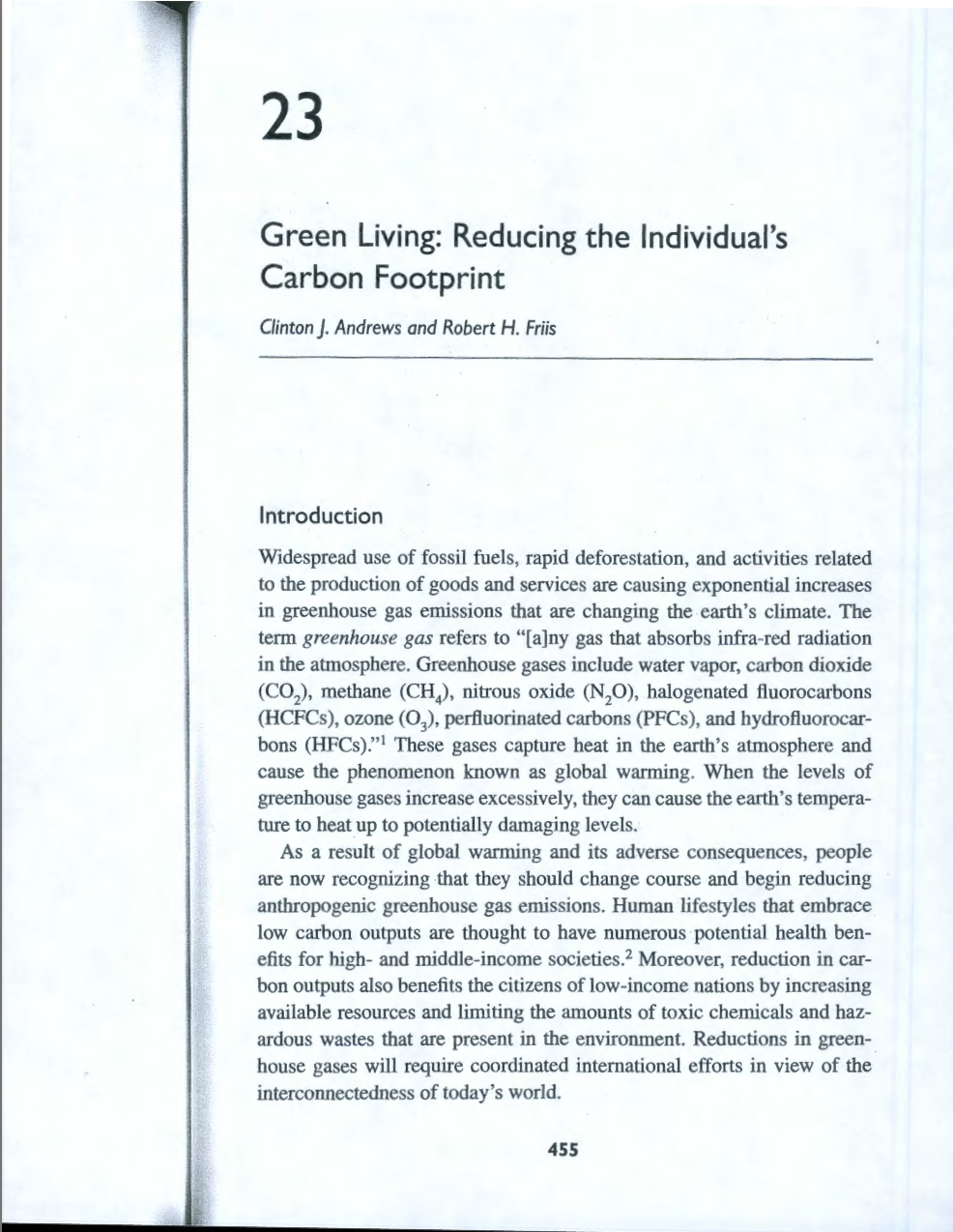Widespread use of fossil fuels, rapid deforestation, and activities related to the production of goods and services are causing exponential increases in greenhouse gas emissions that are changing the earth’s climate. The term greenhouse gas refers to “[a]ny gas that absorbs infra-red radiation in the atmosphere. Greenhouse gases include water vapor, carbon dioxide (C02), methane (CH4), nitrous oxide (N20), halogenated fluorocarbons (HCFCs), ozone (0 ), perftuorinated carbons (PFCs), and hydrofluorocarbons (HFCs).”1 These gases capture heat in the earth’s atmosphere and cause the phenomenon known as global warming. When the levels of greenhouse gases increase excessively, they can cause the earth’s temperature to heat up to potentially damaging levels.
As a result of global warming and its adverse consequences, people are now recognizing that they should change course and begin reducing anthropogenic greenhouse gas emissions. Human lifestyles that embrace low carbon outputs are thought to have numerous potential health ben- efits for high- and middle-income societies.2 Moreover, reduction in car- bon outputs also benefits the citizens of low-income nations by increasing available resources and limiting the amounts of toxic chemicals and haz- ardous wastes that are present in the environment. Reductions in green- house gases will require coordinated international efforts in view of the interconnectedness of today’s world.
